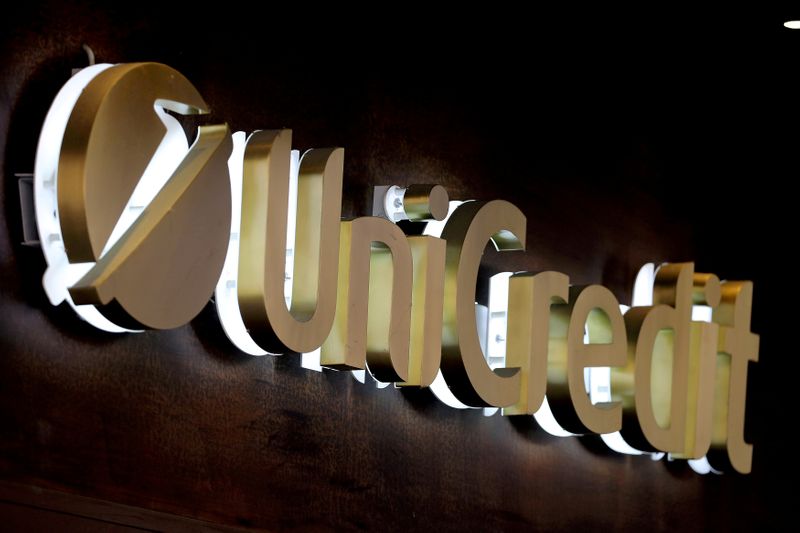MILAN (Reuters) – Leading investor advisers have urged shareholders in UniCredit to reject the proposed pay package of incoming Chief Executive Andrea Orcel at the April 15 annual meeting.
Orcel, the former head of investment banking at UBS, next month will take the reins of Italy’s No. 2 bank, replacing Jean Pierre Mustier, who left in February following a strategy clash with the board.
Orcel will receive an annual fixed salary of 2.5 million euros ($2.9 million) alongside variable remuneration worth up to twice that amount in shares, according to documents released before the meeting.
For the first year alone, the variable compensation is not subject to any performance conditions or claw-back clauses.
“This item warrants a vote against because of the problematic pay package of the new CEO,” influential proxy adviser Institutional Shareholder Services (ISS) said in a report seen by Reuters, taking aim in particular at the fully guaranteed bonus for 2021.
“UniCredit’s generosity towards its new CEO clashes with the current global context, European Central Bank recommendation on executive compensation, and the sobriety of the Mustier era,” ISS added, noting also Orcel has been unemployed since 2019.
The Italian banker left UBS to become the new Santander CEO, but the Spanish bank withdrew its offer. Orcel has sued Santander and a twice-postponed hearing in the 112 million euro court case is now scheduled for May 19.
In joining another employer, Orcel is relinquishing tens of millions in deferred payments that would have been due from UBS, and UniCredit has said it will not compensate him.
Rival Glass Lewis also issued a similar recommendation, which was first reported by the Financial Times.
UniCredit declined to comment.
Orcel’s pay is “higher than most European peers with the exception of UBS (and Santander in a normal year) and higher than new Lloyds CEO Charlie Nunn who is to receive 5.6 million pounds ($7.7 million),” JPMorgan analysts wrote this month.
It also marks a stark change from Mustier, who had cut his salary by 40% to 1.2 million euros when he arrived at UniCredit in 2016 to preside over a restructuring that led to thousands of jobs being cut.
Mustier had further lowered his 2020 salary by 25% because of the pandemic and forfeited his 2.4 million euro variable pay. He left without any severance payment, as agreed when he joined, other than termination payments due by law.
By contrast, UniCredit next month will ask shareholders to amend its severance policy to more than double the maximum amount it can pay to 15 million euros.
Glass Lewis recommended rejecting the new policy, while ISS suggested voting in favour though it said the changes raised concerns.
UniCredit has said changes to the remuneration policies aimed to improve its ability “to attract and retain top-class talents” with a target total compensation set at between the median and upper quartile of its European peers.
($1 = 0.8517 euros) ($1 = 0.7267 pounds)
(Reporting by Valentina Za; editing by David Evans and Steve Orlofsky)

























